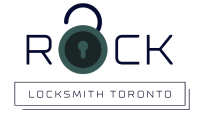Building security audits in Toronto are an integral part of ensuring safety and protection in commercial and residential spaces. In today’s dynamic and ever-changing security landscape, it has become increasingly important to conduct regular audits to identify vulnerabilities and mitigate potential risks. Toronto, known for its bustling urban environment and diverse population, presents unique security challenges that require comprehensive and tailored approaches. By conducting thorough building security audits, property owners and managers can gain valuable insights into the state of their security measures and make informed decisions to enhance safety protocols.
One of the key takeaways from this article is the significance of understanding the specific impacts of building security audits in Toronto. With its rapidly growing population and diverse economy, Toronto faces various security threats that range from physical breaches to cyber attacks. By commissioning comprehensive audits, property owners can identify weak spots in their security infrastructure and take proactive measures to address them. These audits encompass a wide range of elements, including access control systems, surveillance cameras, alarm systems, and security personnel protocols. Such assessments provide an in-depth analysis of the existing security measures and help develop strategies to ensure the safety of both employees and visitors. Moving forward, this article will delve into the key components of effective building security audits in Toronto, shedding light on the best practices and strategies that organizations should adopt to enhance their security posture.
Key Takeaways
1. Building security audits are crucial in ensuring the safety and well-being of occupants in Toronto.
2. These audits involve a thorough assessment of a building’s physical security measures, such as locks, cameras, and access control systems.
3. It is important to conduct regular audits to identify any potential vulnerabilities or weaknesses in security systems.
4. The audit process should include comprehensive documentation and reporting to keep track of findings and recommended actions.
5. Employing the services of experienced security professionals can provide valuable insights and expertise in conducting effective building security audits.
What is a Building Security Audit?
A building security audit is a comprehensive assessment conducted to evaluate the safety and security measures of a building in Toronto. It includes a thorough examination of physical, electronic, and operational aspects to identify potential vulnerabilities and recommend necessary improvements.
Importance of Building Security Audits
Building security audits play a crucial role in ensuring the safety of people and assets within a building. By identifying weaknesses in security systems and procedures, audits help in preventing potential threats, such as burglaries, thefts, or unauthorized access. They also assist in complying with legal requirements and industry standards.
The Process of Conducting a Building Security Audit
1. Assessing Physical Security: In this stage, auditors inspect the building’s perimeter, entrances, locks, windows, lighting, and surveillance systems to evaluate their effectiveness in deterring unauthorized access. They identify any weaknesses or vulnerabilities and recommend improvements.
2. Evaluating Electronic Security Systems: This phase involves analyzing the existing electronic security systems, such as CCTV cameras, access control systems, alarm systems, and fire detection systems. Auditors examine their functionality, coverage, and integration to ensure they provide adequate protection.
3. Reviewing Operational Security: Auditors assess the building’s operational security measures, including security policies, procedures, and training programs. They review the access control protocols, visitor management systems, emergency response plans, and employee awareness to identify any gaps or deficiencies.
4. Identifying Risks and Vulnerabilities: Based on the collected data, auditors conduct a thorough risk assessment to identify potential risks and vulnerabilities specific to the building’s location, industry, and other factors. They prioritize these risks based on their likelihood and impact on the organization.
5. Recommending Security Enhancements: After analyzing the audit findings, auditors provide a detailed report with recommendations for enhancing the building’s security. This may include suggestions for technology upgrades, policy improvements, employee training, or physical modifications.
Choosing the Right Building Security Audit Firm
When selecting a building security audit firm, it’s essential to consider their experience, expertise, and reputation. Look for certifications and qualifications, ask for references, and evaluate their track record in conducting similar audits. Additionally, consider their ability to tailor the audit to your specific needs and provide actionable recommendations.
Stay One Step Ahead with Periodic Audits
Building security audits should not be considered a one-time event. It is vital to conduct periodic audits to adapt to evolving risks and ensure ongoing safety. Regular audits help organizations stay one step ahead of potential threats and ensure optimal security measures are in place.
Guidelines for Building Security Audits in Toronto: Ensuring Safety
- Is the building’s perimeter properly secured to prevent unauthorized access?
- Are the locks, windows, and doors in good condition and resistant to tampering?
- Are there adequate surveillance systems, such as CCTV cameras, covering all critical areas?
- Are the access control systems efficient in managing authorized personnel and restricting unauthorized entry?
- Is there a functioning alarm system in place to detect any security breaches?
- Are fire detection and prevention mechanisms, like smoke detectors and fire extinguishers, strategically placed?
- Do employees receive adequate security training and are they aware of emergency response procedures?
- Is visitor management properly regulated to ensure only authorized individuals gain access to the building?
- Are there proper protocols in place to handle different types of emergencies, such as natural disasters or criminal incidents?
- Is there a system to regularly review and update security policies and procedures based on industry standards?
FAQ
1. What is a building security audit?
A building security audit is a comprehensive assessment of a property’s security measures to identify potential vulnerabilities and weaknesses. It involves evaluating both physical and electronic security systems to ensure the safety of occupants and assets.
2. Why is building security auditing important in Toronto?
Building security auditing is crucial in Toronto due to the increasing security concerns in the city. It allows property owners to identify and address potential security risks, deter criminal activities, and ensure the safety of occupants in a dynamic and rapidly evolving urban environment.
3. Who should conduct a building security audit?
Building security audits should ideally be conducted by certified security professionals or experienced security consulting firms. Their expertise and knowledge ensure a thorough assessment of all security aspects, including physical infrastructure, access control systems, surveillance technologies, and emergency protocols.
4. How often should building security audits be performed?
It is recommended to conduct building security audits periodically, at least once every two years. However, the frequency may vary depending on factors such as the nature of the property, the level of security risks, and any recent security incidents.
5. What are the key areas covered in a building security audit?
A building security audit typically covers areas such as perimeter security, access control systems, video surveillance, alarm systems, emergency preparedness, security policies and procedures, employee training, and physical security barriers.
6. Can a building security audit help lower insurance premiums?
Yes, a comprehensive building security audit can potentially lower insurance premiums. By identifying and addressing security vulnerabilities, property owners can demonstrate their commitment to risk mitigation, which insurers consider when determining insurance rates.
7. How long does a building security audit take?
The time required for a building security audit depends on various factors, including the size and complexity of the property. On average, a thorough audit may take anywhere from several days to a few weeks to complete.
8. What should I expect after a building security audit?
After a building security audit, you can expect a detailed report outlining the vulnerabilities identified and recommended measures to enhance security. This report will serve as a roadmap for implementing necessary improvements.
9. Can a building security audit be customized to unique needs?
Absolutely. Building security audits can be tailored to address the unique needs and concerns of each property. Security professionals can collaborate with property owners to understand their specific requirements and focus on relevant areas during the audit.
10. How can I find a reputable building security auditing service in Toronto?
To find a reputable building security auditing service in Toronto, you can look for certifications such as Certified Protection Professional (CPP) or Physical Security Professional (PSP). Additionally, seek referrals from trusted sources, review customer testimonials, and check their industry experience and expertise.
Final Thoughts
Building security audits play a vital role in ensuring safety and peace of mind for property owners and occupants in Toronto. By proactively identifying vulnerabilities and implementing robust security measures, the risk of criminal activities can be minimized. Considering the dynamic nature of security threats, regular audits are crucial to stay one step ahead and provide a safe environment. Embracing building security audits not only safeguards physical assets but also instills confidence in tenants and visitors, contributing to a thriving and secure community.
With the constant advancements in technology and evolving security risks, it is imperative for property owners in Toronto to prioritize building security audits. By partnering with knowledgeable security professionals and regularly reviewing and updating security measures, they can stay prepared for any eventualities and ensure a safe and secure environment for all stakeholders. Remember, investing in security today is an investment in a safer and more resilient future.






Recent Comments